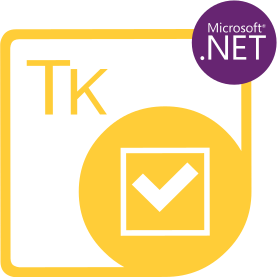Aspose.Tasks for Python via .NET is a robust project management API for handling Microsoft Project files. Our API supports reading, writing, and working with Microsoft Project documents without any other software dependencies, and contains over 100 Python classes to handle low-level project operations and data manipulation. Aspose.Tasks thus provides Python developers with a unique opportunity to implement script-based document automation. The library fully supports various project properties and can be used to manage calendars or work schedules.
With the advent of powerful computing hardware in recent decades, Python has become a programming language widely used in web development (Django, Flask, Pyramid frameworks), scientific tasks, and data analytics. Python's usefulness comes from its large ecosystem of third-party packages. With a large number of libraries that are gradually evolving, Python is considered the best choice for rapid software development. The Aspose.Tasks team decided to keep up with the latest programming trends and provide professional BMP, PNG, JPEG, GIF, TIFF, PDF processing software and other file formats to the Python community.
The Aspose.Tasks API for Python via .NET exposes data such as tasks, resources, resource assignments, and extended attribute data for developers to manipulate. Users can fully schedule by creating and reading tasks and resources, and assign or remove resources to or from tasks. Users can manipulate constraints, priorities, critical and time-consuming tasks, stop or resume tasks and split tasks, manage advanced attributes, link tasks, and write updated data back to the project.
Advanced Python Microsoft Project API Features
Create MS Project and Oracle Primavera files from scratch
Define weekdays and exceptions for a calendar
Read and write password protected MS Project files
Export project to other formats with highly customizable Gantt Chart
Manage baselines, costs & milestones
Handle tasks, resources and assignments extended attributes and their definitions
Customize resource assignment's work contour
Render work breakdown structures (WBS) to images
Render MS Project and Oracle Primavera files to HTML
Sort tasks by names, dates, durations and by many other fields
Update custom properties of MPP Project files
Open and Save project files from/to MS Project Online or on-premise instance of MS Project Server via PWA
Render tasks Files to PDF & Image Formats
Aspose.Tasks for Python via .NET supports rendering tasks, resources, and resource assignment data to fixed-layout formats as well as XML, HTML and several other popular file formats for easy distribution of information.
Convert project data to images
# load file
prj = Project(my_dir + "template.mpp")
# create ImageSaveOptions with desired format
options = ImageSaveOptions(SaveFileFormat.jpeg)
# configure output options
options.horizontal_resolution = 96.0
options.vertical_resolution = 96.0
options.jpeg_quality = 70
# render data to image format
prj.save(my_dir + "output.jpg", options)
You can try online Tasks Converter.
An important feature of the library is the ability to render WBS in a project to any of the standard image formats supported by the .NET Framework. In addition, it is also possible to export project data to CSV, TXT, XLS, XLSX and MPT formats.
Handle Tasks in Project
Aspose.Tasks for Python provides a rich set of classes for handling tasks within a Microsoft Project file. Project plans can range in complexity from a simple flat task list to a large nested group of interdependent tasks. Regardless of the complexity, Aspose.Tasks for Python net is capable of dealing with any scenario.
Convert Project Data to Multiple Formats
Aspose.Tasks for Python supports rendering tasks, resources, and resource assignment data to fixed-layout formats as well as XML, HTML and several other popular file formats for easy distribution of information.
Convert project data to multiple formats
# load file
prj = Project(my_dir + "template.mpp")
# save in different formats
prj.save(my_dir + "output.pdf", SaveFileFormat.pdf)
prj.save(my_dir + "output.html", SaveFileFormat.html)
prj.save(my_dir + "output.xml", SaveFileFormat.xml)
Support and Learning Resources
- Learning Resources
- Documentation
- Source Code
- API References
- Project Formats
- Product Support
- Free Support
- Paid Support
- Blog
- Release Notes
- Why Aspose.Tasks for Python?
- Customers List
- Success Stories
